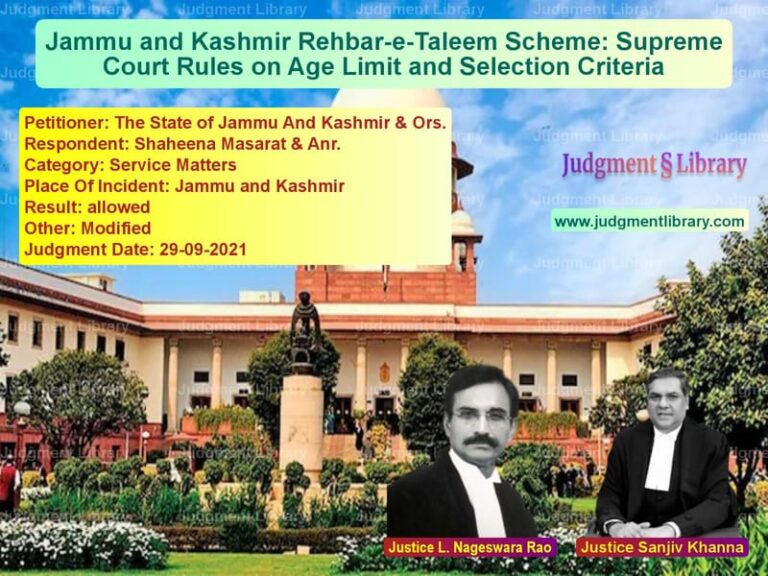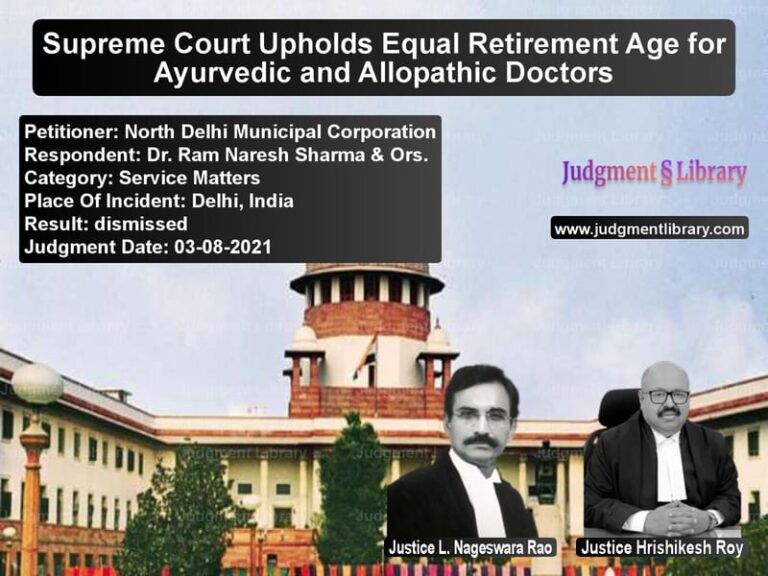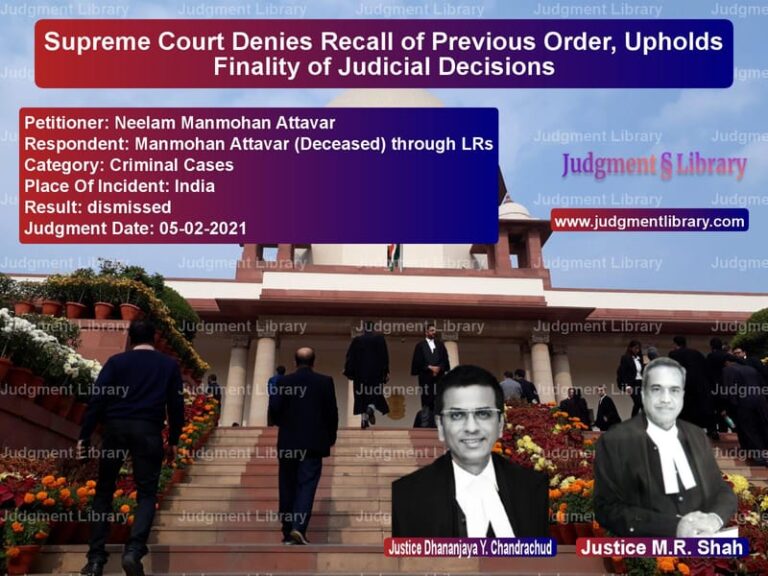Enforcement of Arbitral Awards and Public Policy: Ssangyong Engineering vs NHAI Case Analysis
The case of Ssangyong Engineering & Construction Co. Ltd. vs National Highways Authority of India (NHAI) revolves around a dispute in an arbitration proceeding concerning the adjustment of price indices for a contractual agreement. The Supreme Court of India, in this landmark judgment, addressed the interpretation of arbitration awards under the Arbitration and Conciliation Act, 1996, particularly under Sections 34 and 37.
The National Highways Authority of India (NHAI) had entered into a contract with Ssangyong Engineering for the construction of a four-lane bypass on National Highway 26 in Madhya Pradesh. The dispute arose over price adjustments that were to be calculated based on a formula specified in the contract.
Background of the Case
The contract between Ssangyong and NHAI provided for price adjustments for cement, steel, machinery, and local materials based on a formula in Sub-Clause 70.3 of the agreement. The government later introduced a new Wholesale Price Index (WPI) series (2004-05 = 100), replacing the old series (1993-94 = 100). The NHAI issued a circular requiring the use of a linking factor to adjust indices from the old series to the new one. This circular was challenged by Ssangyong Engineering.
Key Legal Arguments
Petitioner (Ssangyong Engineering & Construction Co. Ltd.)
- The unilateral introduction of a new formula by NHAI through a circular was against the contractual agreement.
- The company had conditionally accepted payments under the new formula, but without waiving its legal right to challenge the change.
- The arbitration tribunal’s decision to apply a linking factor was beyond the scope of the contract and constituted an alteration of the contract.
- The tribunal’s reliance on government guidelines that were not on record violated the principles of natural justice.
Respondent (National Highways Authority of India – NHAI)
- The change in the WPI base year required a linking factor to ensure price adjustments remained relevant.
- The tribunal’s decision was based on government policy, which was binding on all government contracts.
- The company’s conditional acceptance of payments under the new formula indicated their practical acceptance of the change.
- The arbitral tribunal’s interpretation of the contract terms was within its jurisdiction.
Supreme Court’s Observations
The Supreme Court of India, in its judgment, emphasized the need to respect party autonomy in arbitration agreements. The Court made several key observations:
- Arbitration awards cannot rewrite contracts, and any modifications to the contract terms must be based on mutual consent.
- The reliance on government guidelines that were not disclosed to the parties constituted a breach of natural justice.
- The majority award by the arbitral tribunal was set aside under Section 34(2)(a)(iii) of the Arbitration and Conciliation Act, as Ssangyong Engineering was not given an opportunity to respond to the new linking factor.
- The Court invoked Article 142 of the Constitution of India to uphold the dissenting arbitrator’s award, ensuring justice was done without prolonging litigation.
Final Judgment
The Supreme Court ruled in favor of Ssangyong Engineering, holding that:
- The arbitral award applying a linking factor was not enforceable as it exceeded the tribunal’s jurisdiction.
- The reliance on undisclosed government guidelines violated the principles of natural justice.
- The minority award, which adhered to the original contract terms, was upheld and directed to be enforced.
Impact of the Judgment
This judgment clarifies key principles in arbitration law:
- It reinforces the importance of party autonomy and contractual sanctity in arbitration.
- It underscores that arbitral tribunals cannot introduce new contractual terms unilaterally.
- It provides clarity on the scope of judicial review under Section 34 of the Arbitration and Conciliation Act, 1996.
- It sets a precedent for ensuring that natural justice principles are upheld in arbitration proceedings.
The ruling is a significant step in promoting fairness in arbitration and ensuring that tribunals do not overstep their jurisdiction by introducing extraneous elements not agreed upon by the parties.
Petitioner Name: Ssangyong Engineering & Construction Co. Ltd..Respondent Name: National Highways Authority of India (NHAI).Judgment By: Justice R.F. Nariman, Justice Vineet Saran.Place Of Incident: Madhya Pradesh.Judgment Date: 08-05-2019.
Don’t miss out on the full details! Download the complete judgment in PDF format below and gain valuable insights instantly!
Download Judgment: Ssangyong Engineerin vs National Highways Au Supreme Court of India Judgment Dated 08-05-2019.pdf
Direct Downlaod Judgment: Direct downlaod this Judgment
See all petitions in Arbitration Awards
See all petitions in Dispute Resolution Mechanisms
See all petitions in Enforcement of Awards
See all petitions in Settlement Agreements
See all petitions in Arbitration Act
See all petitions in Judgment by Rohinton Fali Nariman
See all petitions in Judgment by Vineet Saran
See all petitions in allowed
See all petitions in supreme court of India judgments May 2019
See all petitions in 2019 judgments
See all posts in Arbitration and Alternate Dispute Resolution Category
See all allowed petitions in Arbitration and Alternate Dispute Resolution Category
See all Dismissed petitions in Arbitration and Alternate Dispute Resolution Category
See all partially allowed petitions in Arbitration and Alternate Dispute Resolution Category







